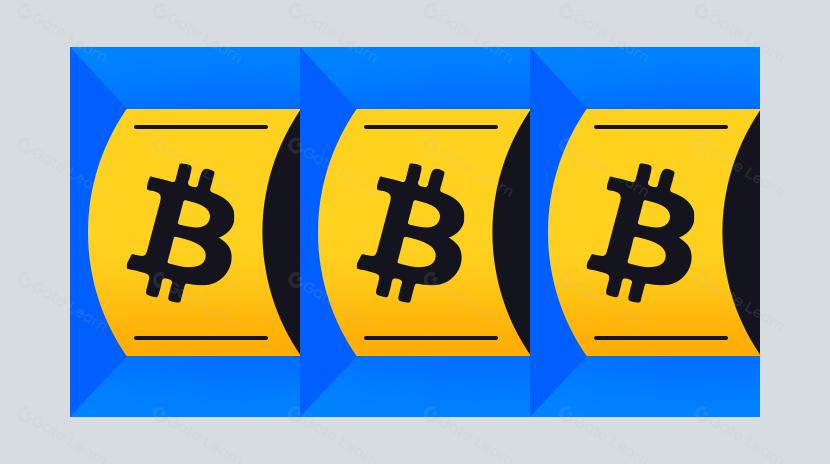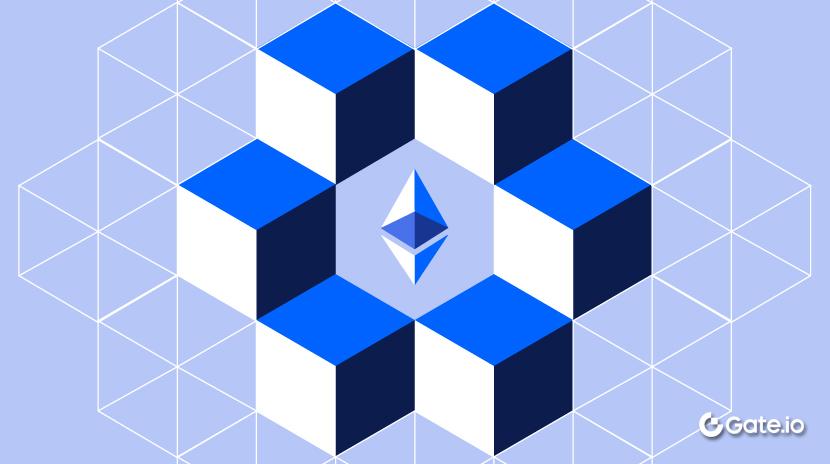Steth

Что такое Ethereum Staking Token?
Ethereum staking token, также известный как Liquid Staking Token (LST), — это токенизированное право на застейканный ETH и его вознаграждения в сети Ethereum на алгоритме Proof-of-Stake (PoS). Такой токен выпускается при стейкинге ETH через протокол ликвидного стейкинга, что позволяет сохранять ликвидность и одновременно получать вознаграждения валидатора. На практике LST можно свободно торговать, использовать в качестве залога или размещать в DeFi без необходимости ожидать разблокировки средств.
С точки зрения функционала эти токены не являются самостоятельными активами, а подтверждают право собственности на застейканный ETH и его вознаграждения. Обычно их можно обменять на нативный ETH через протокол или специальные процедуры, однако их стоимость может отличаться от ETH — с премией или дисконтом, особенно в периоды рыночного стресса.
Какова текущая цена, рыночная капитализация и объем обращения Ethereum Staking Tokens (stETH)?
stETH создан для отслеживания курса ETH в долгосрочной перспективе, однако может торговаться с небольшой премией или дисконтом в зависимости от ликвидности, спроса на заемные средства и скорости выкупа. Рыночная капитализация зависит от двух факторов: объема ETH, представленного stETH, и рыночной цены ETH. Объем обращения меняется по мере выпуска новых stETH через стейкинг и сокращается при выкупе токенов.
Эти показатели постоянно изменяются из-за рыночных условий и особенностей очередей в блокчейне. Для получения актуальных данных обращайтесь к аналитике протокола и основным страницам рыночной информации на момент просмотра.
Кто создал Ethereum Staking Tokens (stETH) и когда?
stETH был выпущен протоколом Lido для предоставления пользователям ликвидного доступа к стейкингу Ethereum. Токен появился во время перехода Ethereum на Proof-of-Stake, чтобы дать частным и институциональным инвесторам возможность получать вознаграждения за стейкинг без необходимости управлять инфраструктурой валидаторов или блокировать ликвидность в одном активе.
Как работают Ethereum Staking Tokens (stETH)?
В Ethereum PoS стейкинг предполагает блокировку ETH у валидаторов для обеспечения безопасности сети и подтверждения транзакций, за что начисляются вознаграждения. Протоколы ликвидного стейкинга объединяют ETH пользователей и делегируют его профессиональным операторам; взамен пользователи получают токены, такие как stETH, отражающие их долю.
stETH использует модель учета "ребейса": баланс токена периодически увеличивается по мере распределения вознаграждений за стейкинг. Для совместимости с приложениями, не поддерживающими ребейс, существует "обернутая" версия — wstETH; в этом случае доходность отражается в обменном курсе между wstETH и ETH, а сам баланс токена остается неизменным.
По цене stETH стремится следовать стоимости ETH, но возможны отклонения — премии или дисконты — в зависимости от очередей на выкуп, ликвидности рынка и уровня риска. Для выкупа ETH необходимо поставить stETH в очередь по правилам протокола; время обработки зависит от нагрузки на сеть и выхода валидаторов.
Что можно делать с Ethereum Staking Tokens (stETH)?
stETH часто используется как доходная позиция по ETH в различных ончейн-сценариях:
- Использовать как залог для займа стейблкоинов с целью расходования, хеджирования или ребалансировки портфеля.
- Размещать в DeFi-стратегиях, принимающих stETH или wstETH, чтобы получать дополнительную доходность, учитывая, что каждый уровень увеличивает риски смарт-контрактов и ликвидации.
- Конвертировать неиспользуемый ETH в stETH для долгосрочного хранения, если нужна доходность от стейкинга без потери возможности продажи или перевода средств.
Перед использованием stETH за пределами простого хранения изучите риски дисконта к ETH, пороги ликвидации и правила работы протокола при выкупе в условиях перегрузки.
Какие кошельки и интеграции поддерживают Ethereum Staking Tokens (stETH)?
Самостоятельные кошельки, такие как MetaMask, поддерживают работу с stETH и wstETH. Аппаратные кошельки, например Ledger, обеспечивают повышенную безопасность ключей. Многие DeFi-протоколы принимают stETH как залог или ликвидность, при этом wstETH обычно обладает более широкой совместимостью. Поддержка кроссчейн и Layer 2 различается в зависимости от протокола; всегда проверяйте адреса контрактов и сети (основная сеть Ethereum или L2) перед взаимодействием.
Каковы основные риски и регуляторные аспекты Ethereum Staking Tokens (stETH)?
| Тип риска | Ключевой аспект | Проактивное действие для безопасности |
|---|---|---|
| Риск протокола | Уязвимости смарт-контрактов и штрафы "slashing". | Отслеживайте аудиты протокола и отчеты о диверсификации операторов. |
| Риск ликвидности | Отклонение цены (stETH < ETH) и время ожидания выкупа. | Избегайте чрезмерного кредитного плеча; держите резерв для волатильности рынка. |
| Операционный риск | Фишинговые атаки, потеря приватного ключа или сбои платформы. | Используйте холодное хранение и проверяйте все адреса контрактов. |
| Регуляторный риск | Изменения налогового законодательства и классификация токенов по юрисдикции. | Консультируйтесь с местными налоговыми специалистами по вопросу "доходов от стейкинга". |
Как купить и безопасно хранить Ethereum Staking Tokens (stETH) на Gate?
Шаг 1. Зарегистрируйте аккаунт на официальном сайте Gate и выполните настройку безопасности, включая двухфакторную аутентификацию и торговый пароль.
Шаг 2. Пополните счет. Зачислите USDT или ETH на счет Gate или купите USDT через фиатные каналы.
Шаг 3. Найдите “stETH” или “wstETH” на спотовом рынке. Проверьте торговую пару (например, stETH/USDT) и убедитесь, что адреса контрактов и сети соответствуют основной сети Ethereum.
Шаг 4. Разместите ордер на покупку. Выберите лимитный или рыночный ордер в зависимости от стратегии; крупные сделки лучше разбивать для снижения проскальзывания и влияния на волатильность.
Шаг 5. Проверьте приобретенные токены в панели управления активами. Для долгосрочного хранения или использования в ончейне выведите их на самостоятельный кошелек. Выберите сеть Ethereum и внимательно проверьте адрес получателя и тип токена (stETH или wstETH).
Шаг 6. Безопасное хранение. Сохраните seed-фразу — не делайте скриншоты и не храните онлайн; рассмотрите аппаратные кошельки для дополнительной безопасности; тестируйте небольшие переводы перед крупными транзакциями.
Шаг 7. Текущее управление. Если используете stETH как залог или в стратегиях, изучайте раскрытия протокольных рисков, пороги ликвидации и связанные комиссии; держите резерв ликвидности на случай ценовых отклонений или задержек в очередях.
Чем Ethereum Staking Token (stETH) отличается от ETH?
Природа актива: ETH — нативный актив, stETH — квитанция о стейкинге, отражающая застейканный ETH и вознаграждения.
Ценовое поведение: ETH — чистая спотовая позиция, stETH обычно следует за ETH, но может торговаться с премией или дисконтом при изменении ликвидности или спроса на выкуп.
Доходность: ETH не приносит дохода от стейкинга без размещения в стейкинге, stETH приносит доход через ребейс или модель обменного курса wstETH.
Ликвидность и выкуп: ETH можно использовать на ончейне мгновенно, stETH можно продать на рынке сразу, но выкуп через протокол в ETH может потребовать ожидания.
Профиль риска: ETH несет рыночный риск, stETH несет рыночный, а также протокольный, ликвидный и риск отклонения курса, особенно при использовании с кредитным плечом или в залоге.
Краткое описание Ethereum Staking Tokens (stETH)
Ethereum staking tokens сочетают доходность от стейкинга с гибкостью капитала. Представительские активы, такие как stETH (через ребейс или обертывание), позволяют держателям получать доходность и при этом торговать токенами или использовать их как залог. Хотя stETH обычно отслеживает стоимость ETH, краткосрочные отклонения возможны из-за очередей на выкуп или условий ликвидности. Обычным инвесторам важно определить цель использования (долгосрочное хранение, заимствование/залог или участие в стратегиях), выбрать подходящую версию (stETH или wstETH), приобретать через регулируемые площадки, такие как Gate, использовать безопасное самостоятельное хранение и держать резерв на случай ценовых колебаний или задержек вывода. Для долгосрочного успеха необходимы постоянный контроль рисков, мониторинг регуляторных изменений и дисциплинированное управление средствами.
FAQ
Как начисляются вознаграждения после стейкинга ETH для stETH?
Вознаграждение поступает от стимулов для валидаторов сети Ethereum. При стейкинге ETH для получения stETH ваши средства используются для подтверждения транзакций в блокчейне. Сеть выпускает новый ETH в качестве вознаграждения валидаторам; эти вознаграждения автоматически добавляются к вашему балансу stETH — ваши активы увеличиваются со временем.
Является ли stETH ликвидным? Что учитывать при продаже?
stETH обладает высокой ликвидностью и может быть мгновенно продан на биржах, таких как Gate. Однако его цена может немного отличаться от ETH (дисконт или премия). Всегда проверяйте актуальные рыночные цены перед сделкой. Крупные ордера могут вызвать проскальзывание — рассмотрите дробление сделок для лучшего исполнения.
Можно ли использовать stETH для кредитования или участия в DeFi?
Да. Как ликвидный стейкинговый токен, stETH поддерживается во многих DeFi-протоколах в качестве залога для кредитования, майнинга ликвидности и др. Это влечет дополнительные риски смарт-контрактов — изучайте аудиты протоколов перед участием в сложных стратегиях. Новичкам рекомендуется начать с базовых операций на бирже Gate до освоения более сложных DeFi-приложений.
ETH блокируется при стейкинге? Можно ли вывести его в любой момент?
После обновления Ethereum Merge нативный застейканный ETH остается заблокированным до активации официального вывода в сети. Однако через такие протоколы, как Lido, вы получаете stETH, который можно сразу продать или обменять — ждать не нужно. Учитывайте возможные комиссии и волатильность рынка при выкупе; торговля на высоколиквидных платформах, например Gate, помогает получить оптимальную цену.
Новичкам лучше стейкать ETH напрямую или купить stETH?
Прямой стейкинг требует 32 ETH на валидатора и блокирует капитал — это подходит для опытных пользователей с крупными активами. Покупка stETH снижает порог входа, дает большую ликвидность, мгновенную торговлю и постоянную доходность — такой вариант более доступен для новичков. Начните с небольшой покупки stETH на Gate для получения опыта и принимайте решение, исходя из размера капитала и отношения к риску.
Глоссарий ключевых терминов по stETH
- Стейкинг: Процесс, при котором пользователи блокируют криптоактивы для подтверждения транзакций в блокчейне и получают за это вознаграждение.
- Ликвидный стейкинг: Механизм, позволяющий стейкать активы и сохранять ликвидность за счет получения торгуемых квитанций о стейкинге.
- Ethereum 2.0: Обновление Ethereum до консенсуса Proof-of-Stake для повышения безопасности и снижения энергопотребления.
- Смарт-контракт: Самоисполняемая программа в блокчейне, реализующая заранее заданные условия без посредников.
- APY (годовая процентная доходность): Годовой процентный доход от стейкинга активов с учетом сложного процента.
- Валидатор: Участник, который стейкает активы в сети Proof-of-Stake для подтверждения транзакций.
Дополнительные материалы и источники по Ethereum Staking Tokens (stETH)
-
Официальный сайт / Whitepaper:
-
Документация для разработчиков:
-
Авторитетные медиа / исследования:
Похожие статьи

Что такое Нейро? Все, что вам нужно знать о NEIROETH в 2025 году

Лучшие криптовалютные лотерейные платформы на 2024 год
